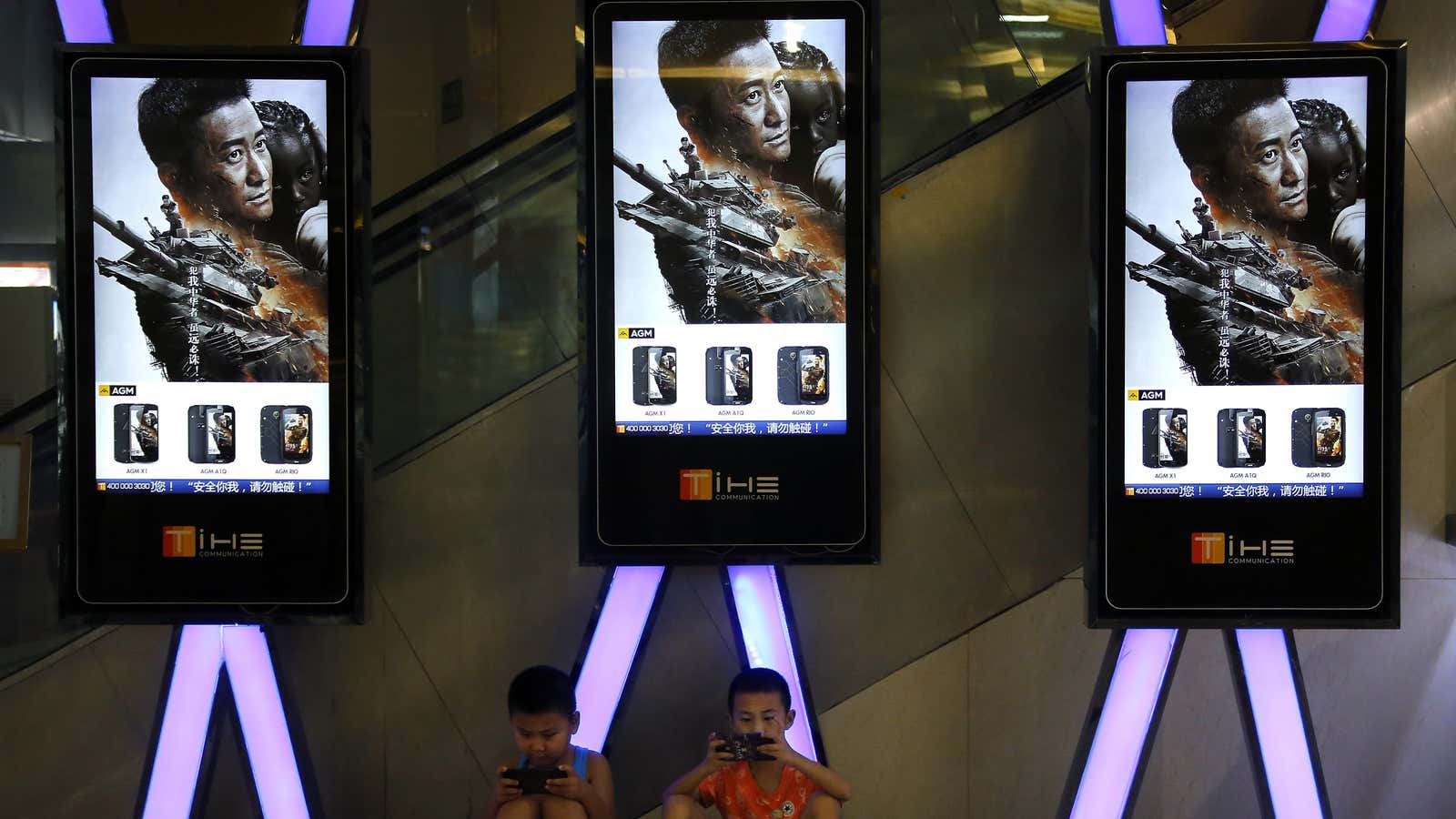China’s biggest movie of the year wasn’t a popular Western actioner like the Fast & Furious and Transformers films. It was Wolf Warrior 2, a homegrown action sequel about a Chinese special forces agent who comes out of retirement to fight Western mercenaries.
With $854 million at the Chinese box office, the movie is now the second highest-grossing of all-time in a single market. Only Star Wars: The Force Awakens, which earned $937 million in North America in 2015, has done better.
It also helped China’s box office cross a new threshold. On Nov. 20, the box office surpassed 50 billion yuan ($7.5 billion) for the first time in a single year, said the state authority.
This comes a year after sagging growth had filmmakers and studios worried that China’s decade of average annual box-office growth of at least 35% was over. In 2016, the total box office grew 3.7% year over year, compared to 48% the prior year. But the world’s second-largest movie market appears to be getting back on track.
After a disappointing summer, the North American box office is down 4% from last year at $9.38 billion through Nov. 19. Tickets sold are also down 7% around 1.05 billion, Box Office Mojo estimated. That’s compared to a 15% increase to 1.4 billion admissions in China. There, movies that bombed with US audiences, like Transformers: The Last Knight, still prevailed.
And while Wolf Warrior 2 is pure hyper-nationalist China, it did have a bit of help from the Americans.
How Hollywood aided “Wolf Warrior 2”
Called China’s answer to Rambo, the patriotic movie had its fair share of Western influences. The sequel’s larger, $30 million budget afforded it input from Marvel directors Joe and Anthony Russo, from Captain America: Civil War and Avengers: Infinity War, Variety reported. The brothers consulted on the film, US actor Frank Grillo played the villain, and it had an American stunt director and composer.
Hollywood has been collaborating more with China’s growing movie business. Hollywood studios have worked with Chinese partners to add subplots that appeal to local audiences and meet the government’s strict regulations for movies like Iron Man 3 and The Great Wall. And Chinese filmmakers are leaning on Hollywood to help them make movies with broad international appeal.
To aid its ailing box office last year, China’s government relaxed its quota on foreign films. It released 38 instead of 34 that year, the majority of which were from the US. The US and China—the biggest export market for Hollywood films—are due to re-negotiate the quota this year.
The country also imposes blackout periods during busy times like the summer months, when only local films can be screened. That propped up domestic releases like Wolf Warrior 2 and The Founding of an Army.
But the quotas and blackouts historically guaranteed that Chinese films, including co-productions with Hong Kong or American partners, accounted for 60% of the overall box office. And the government seems to be easing off that, too. So far in 2017, Chinese films made up about 52%, down from around 58% in 2016.
State regulators expect China’s box office to finish 2017 with 55 billion yuan, a 20% lift from last year. In the US, all eyes are on Star Wars: The Last Jedi to save 2017.
